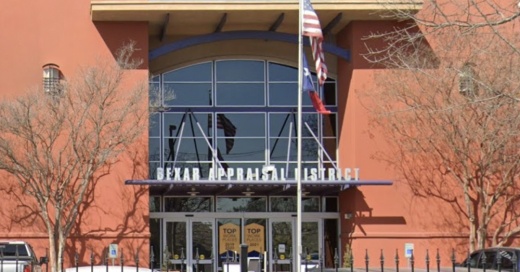Home values across Bexar County have increased more than 20% in the past year, and local officials are urging homeowners to take advantage of available tools in order to protest their appraisal.
San Antonio leaders are also looking at ways the city can provide additional property tax relief.
Since the Bexar Appraisal District’s recent initial release of new property values, local elected leaders have issued calls to help concerned homeowners in various ways.
District 8 City Council Member Manny Pelaez in an April 22 email blast to constituents extended tips for submitting a formal appraisal protest, which this year must be completed by May 16, according to the BAD.
"Many in San Antonio all felt that sense of sticker shock in seeing our increased property value appraisals. While these appraisals are set by the Bexar Appraisal District and City Council doesn’t have oversight over this state agency, I am working in a few areas to assist neighbors with their property tax burden,” Pelaez said.
In a video released by Pelaez’s council office April 21, Pelaez urged homeowners to protest their appraisal.
“Protest your taxes. If you don’t protest them, then you pay 100%. If you do protest them, you have a very good chance of reducing that burden,” he said.
The video includes a discussion among Pelaez, and Gary Rivas and Jerry Jurica, both ad valorem tax advisors with the local company SWBC.
The video features the annual scheduled timeline when BAD begins each calendar year by determining a home value by calculating a property’s market value based on its condition and possible sale price.
Pelaez said homeowners in Bexar County may protest excessive value, unequal appraisal, failure to receive exemptions and/or failure to receive a notice.
According to BAD, homeowners may file a protest by using the form attached to their appraisal notice or by going to www.bcad.org.
Homeowners who have filed a protest by the deadline will talk with an appraisal district staffer in an informal meeting in June.
Rivas and Jurica said it is important for homeowners to bring to the informal meeting all pertinent information, including information on comparable sales in their neighborhood, any refinancing documentation, repair estimates, photos and other records that may demonstrate a devaluation of one’s home.
After this meeting, the BAD could propose a reduced value, which a protester may accept or reject and request a formal hearing with the Appraisal Review Board. According to the BAD, a protesting homeowner participating in an ARB meeting is required to present evidence and witnesses supporting their stance that their home is overvalued.
The appraisal district will have a representative question the homeowner and provide evidence to rebut the protester’s argument. The homeowner is able to ask follow-up questions.
The ARB meeting also includes each side offering a closing statement. Board members then discuss the protester’s case and render a final decision on the recommended home value.
Pelaez’s office is also providing information on exemptions available to eligible homeowners. Applications for a homestead exemption must be submitted in person before May 1 at the BAD office, 411 N. Frio St.
Pelaez also told constituents that fellow council members and city staff are exploring the feasibility of increasing the city’s homestead exemption by at least 5%.
San Antonio offers a $5,000 homestead exemption to eligible individuals and a maximum $65,000 exemption for property owners age 65 and over. The city also offers a $12,500 homestead exemption for disabled residents. Bexar County commissioners in March adopted a $5,000 homestead exemption.
“As we prepare for the next fiscal year budget, we will also be evaluating the possibility of reducing the city’s assessed tax rate, which hasn’t increased in the last 20-plus years and has actually been reduced several times in that period,” Pelaez told constituents.
District 9 Council Member John Courage, in an April 14 email blast to constituents, said he believes the city should consider raising its homestead exemption to the state-allowed maximum of 20% of a home value.
“This relief is meant to target working families that are just now recovering from the economic trauma of the pandemic,” Courage said.
Courage said the newest appraisals should push the council to act this summer during the city’s preparations for its fiscal year 2022-23 budget.
“In partnership with the county and other taxing entities, we can begin to stack these exemptions and create significant relief to help fight the increased cost of living for San Antonio homeowners,” Courage said.
District 10 Council Member Clayton Perry in an April 13 council session reiterated his push to increase the city’s homestead exemption and decrease the property tax rate.
“I am calling on all taxing authorities like the city, San Antonio River Authority, University Health System, and the school districts to increase or start a homestead exemption to provide real property tax relief for our homeowners,” Perry said.





